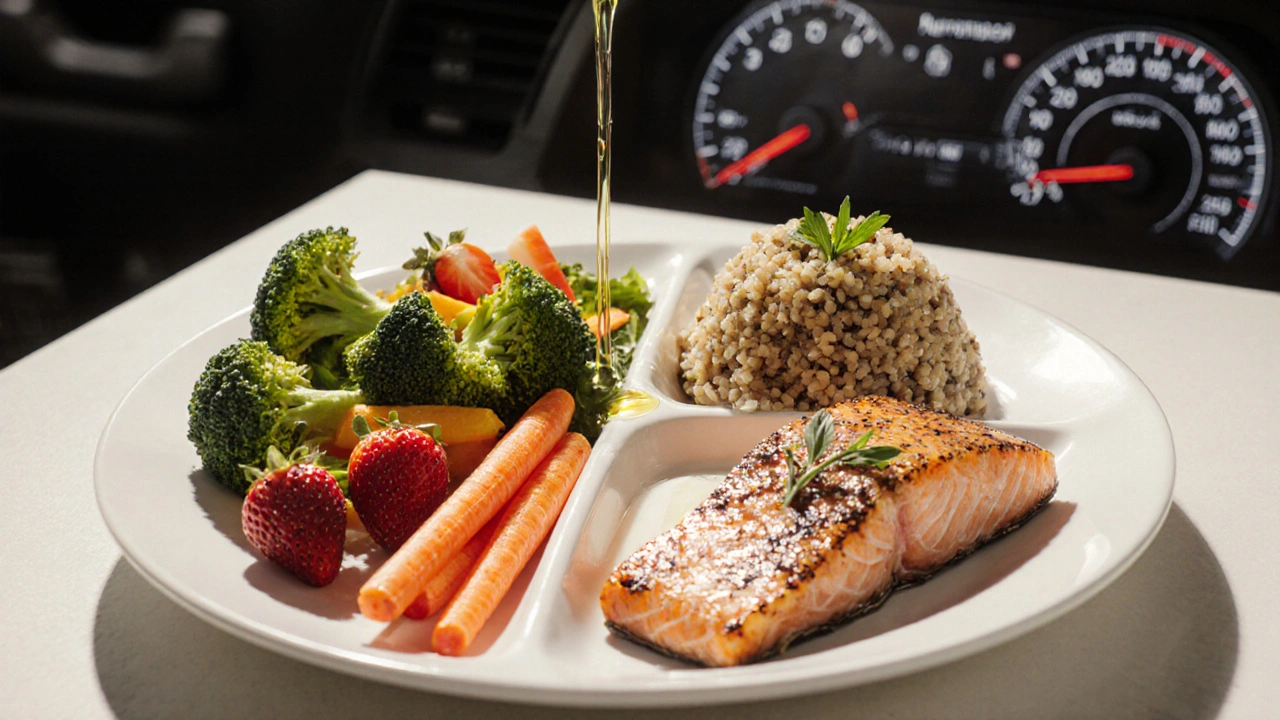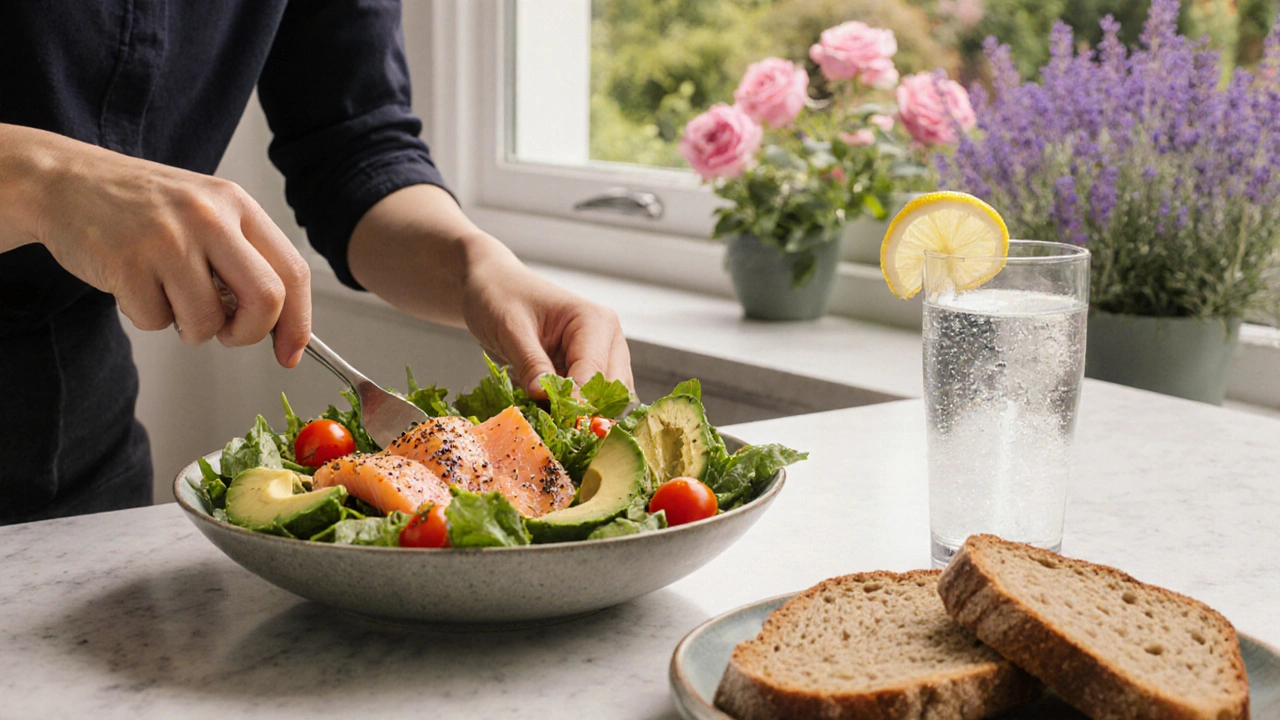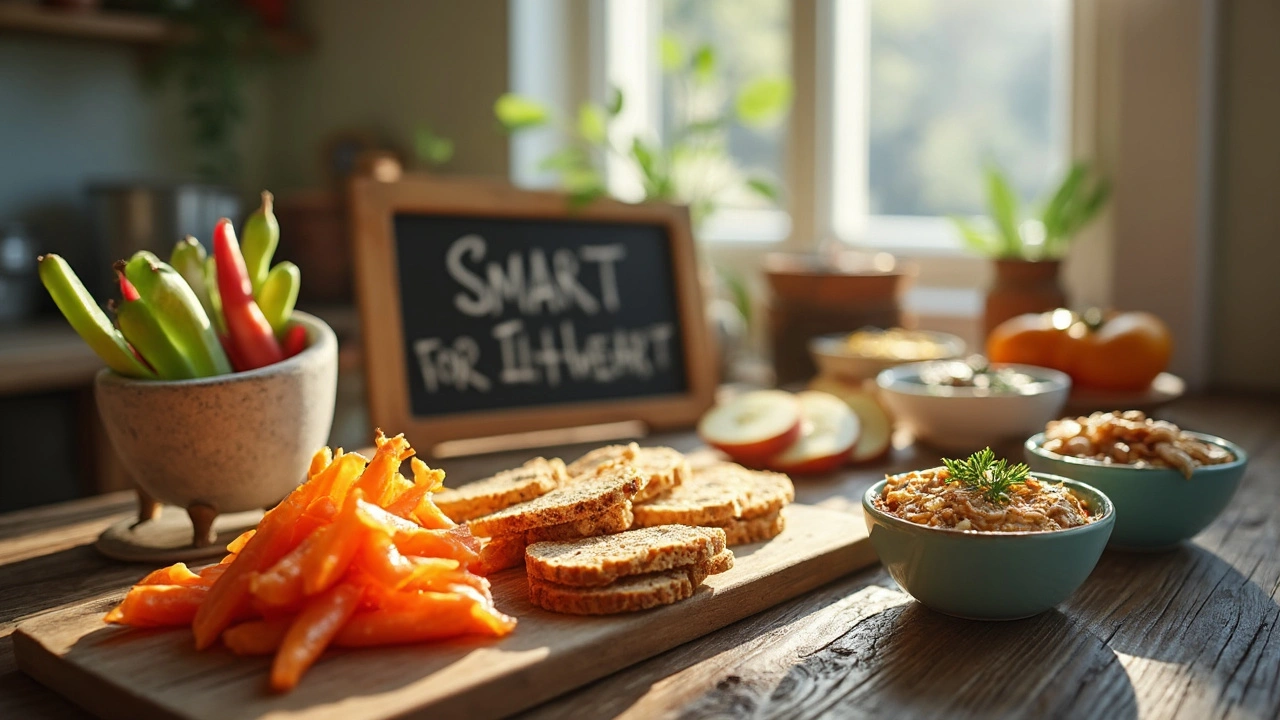Nutrition: Smart Food Choices for You and Your Dog
Food affects energy, mood, immune strength, and recovery—for you and your pet. Good nutrition doesn’t need to be complicated. Small, consistent choices beat big, short-lived diets. Here you'll find clear tips you can use today: quick breakfasts, better snacks, gut-friendly habits, and basic dog food rules that actually help.
Practical swaps and quick meals
Start the day with protein plus fiber. Try a bowl of plain Greek yogurt with berries and oats, or scrambled eggs with spinach and whole-grain toast. If mornings are rushed, blend a smoothie: leafy greens, a frozen banana, a scoop of protein powder, and a handful of oats. Want juicing? Use a mix of leafy greens, cucumber, green apple, and a bit of ginger for flavor—add protein separately to keep blood sugar steady.
Snacks should do more than fill time. Choose almonds, carrot sticks with hummus, or apple slices with peanut butter. For heart health, swap chips for air-popped popcorn or whole-grain crackers with avocado. If you manage blood sugar, pair carbs with protein: cottage cheese and berries, or whole-grain toast with turkey slices. These combos slow digestion and avoid sugar spikes.
Looking to lose weight or boost metabolism? Focus on portion control, prioritize protein at each meal, and choose high-fiber vegetables. Little habits—drinking a glass of water before meals, packing meals in advance, and using smaller plates—make a big difference over time.
Gut health, special diets, and simple rules for dogs
Your gut affects energy and immune function. Add fermented foods like yogurt, kefir, or sauerkraut for diversity. Eat a variety of plants—beans, whole grains, fruits, and vegetables—to feed helpful gut bacteria. If you or a family member has diabetes or digestive issues, track how foods make you feel and work with a professional for personal guidance.
Dogs need balanced nutrition too. Choose a complete dog food labeled for your pet’s life stage (puppy, adult, senior). Protein is essential—look for named meat sources first on the label. Healthy fats support coat and brain health; fiber supports digestion. Never feed chocolate, grapes, raisins, onions, garlic, or anything with xylitol. For treats, try plain cooked chicken, carrot sticks, or homemade pumpkin bites (pure pumpkin, oat flour, egg).
Quick checklist to use today: read labels for named ingredients, add veggies to a meal, swap a sugary drink for water or a veggie smoothie, portion snacks ahead, and avoid human foods that harm dogs. Small changes repeated every day create better health for you and your dog.
Want specific recipes or a plan for weight loss, diabetes, or puppy growth? Check the posts below for easy recipes, snack ideas, and gut-health strategies tailored to different goals.

Healthy Diet for the Whole Family: A Practical Guide
A practical, no-fluff guide to feeding your whole family healthy food without stress. Learn how to plan meals, choose smart snacks, get kids involved, and build lasting habits with simple changes that work in real life.

Decoding the Healthy Diet: Answers to Your Top Nutrition Questions
A clear guide that explains what a healthy diet really means, breaks down nutrients, busts myths, and offers practical steps to build balanced meals.

Healthy Diet Essentials for a Vibrant Life
Discover how a healthy diet fuels energy, prevents disease, and supports a vibrant life with practical tips, food choices, and expert guidance.

How to Boost Your Health with Nutritious Snacking: Simple Rules, Portions, and Smart Ideas
Snack smarter without dieting. Learn simple rules, portions, and quick ideas to boost energy, manage weight, and support blood sugar-backed by credible nutrition advice.

Why Health Juice Should Be Your Morning Ritual: Benefits, Low-Sugar Recipes, and a 5‑Minute Habit Plan
Make health juice your morning ritual with science-backed benefits, simple low-sugar recipes, and a 5‑minute habit plan. Smarter juice, more energy, zero fuss.

How Nutrition Impacts Mental Health: Foods for a Happier Mind
Explore the fascinating link between what you eat and how you feel. Dive into the science, practical tips, and real foods that can boost mental health.

Health Juice Ingredients: Boost Wellness with Every Sip
Discover the most powerful health juice ingredients, why they work, and clever ways to blend them for maximum nutrition and delicious flavor.

Healthy Breakfast Ideas: Power Up Your Mornings with Nutritious Choices
Discover science-backed tips, recipes, and strategies to create the healthiest breakfast for your body. Learn facts about morning nutrition and get practical, tasty ideas.

Healthy Diet Secrets: How to Stick to Your Nutrition Goals
Unveil practical secrets for maintaining a healthy diet, managing weight, and making better food choices with tips that fit into real life, not just theory.

Healthy Snacks Your Heart Will Love: Smart Choices for Daily Munching
Heart-healthy snacks don't have to be bland or boring. This article digs into tasty, low-effort snack ideas that help lower cholesterol and manage blood pressure. You’ll get quick tips, easy swaps, and insight into which everyday foods actually support your heart. Practical advice and real science make it easy to snack smarter. Don’t let cravings mess with your health — turn snack time into a win for your heart.

Health Juice: Your Easy Route to Better Hydration
Aug, 21 2024

Fire Massage: The Heat Therapy That's Taking Over
Jan, 23 2026

How Rolfing Can Improve Your Mental Health
Aug, 8 2023

